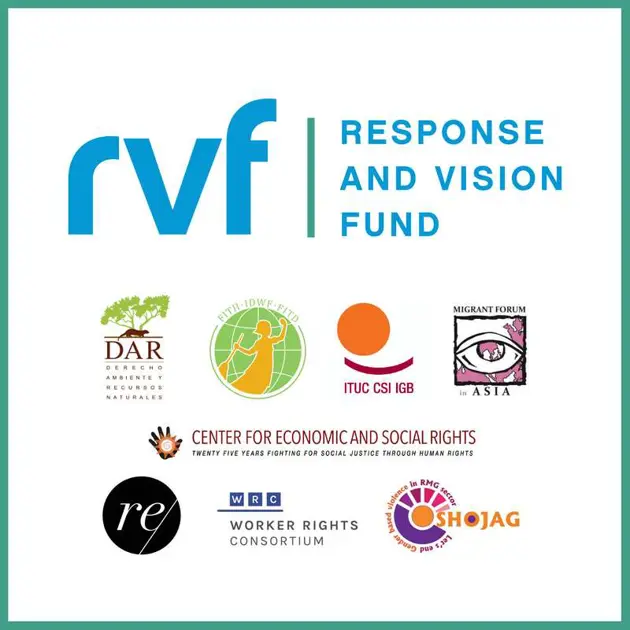Planet Tracker partners with Laudes Foundation to launch Textiles Tracker
Non-profit think tank Planet Tracker has received a major grant from Laudes Foundation to bring their proven methodology to the fashion industry. The recently launched foundation is an independent foundation aiming to tackle the dual challenges of inequality and the climate crisis by transforming our global economic system. Building on the work of C&A Foundation, tackling the systemic issues of the fashion industry is a central pillar of its strategy.
Currently, the listed equities portion of the fashion industry generates over USD 1.2 trillion in revenues. Yet investors in this industry are not incorporating the true cost of their investments. Specifically, while multiple studies have highlighted the deep, environmental impact of the fashion and textiles industry, Planet Tracker has found little analysis assessing those natural capital-related financial risks across the value chain which can impact shareholder value. Textiles Tracker will identify and analyse these potential financial risks, enabling investors to cost in natural capital factors.
“Without a broader view of system dynamics influencing the industry – with a particular focus for this project on understanding the industry’s financial and related investment systems – change will happen piecemeal and slowly. If the cost of natural capital is factored into financial flows, change will occur far more rapidly as businesses cannot risk loss of capital or indeed reputation,” said Planet Tracker’s CEO Robin Millington. “This grant will give us the resources to undertake a detailed analysis of the textiles industry and identify value-at-risk for investors.”
“We launched Laudes Foundation to help harness the productive power of the market to value all people and respect nature. This can only be done if investors have access to the right information to make informed decisions. Planet Tracker is a powerful demonstration of how this can be done in an industry – in this case fashion, an industry that generates 10% of global greenhouse gas emissions. We’re proud to work with Robin and her team to better capture these risks and influence the flow of capital in this important industry," said Leslie Johnston, CEO of Laudes Foundation.
The fashion industry has increasingly come to the attention of politicians, environmental activists and media. The focus of scrutiny has been mainly on the impacts of the industry’s practices that are driven by a variety of trends. ‘Fast-fashion’, for example, has accelerated the rates of production and consumption.
Since 2000, global clothing production globally has doubled while utilisation has decreased by 36%, resulting in up to 73% of all produced clothing (equivalent to USD 460 billion) ending in landfill annually.
The financial value generated by the sector’s largest companies do not price in or value the ecological cost of their current practices. Valuing natural capital in the textile industry and relating it to financial risk creates tremendous potential to catalyse a change in investment behaviour.
If the textile industry does not fundamentally transform, business-as-usual dynamics are projected as follows by 2050:
- Textile industry related CO2e emissions will represent 26% of the global carbon budget (vs 2% in 2015);
- Non-renewable energy inputs into the supply chain (oil, coal) will increase to 300m tonnes per year (vs 98m in 2015);
- Microplastic-fibres entering the ocean will accumulate to 22m tonnes (the equivalent of four billion polyester t-shirts entering the ocean each year until 2050);
- EBIT margin declines of three to four percentage points risks annual profit reductions of approx. USD 52 billion per year for the industry by 2030.
“By identifying financial risks to investors linked to ecological boundaries within the textiles value chain, Textile Tracker aims to stimulate investors to re-allocate funds in ways which influence change in the industry towards more sustainable practices,” concludes Millington.
-----------
Planet Tracker contact:
Robin Millington
CEO, Planet Tracker
robin.millington@planet-tracker.org new-economy
About Planet Tracker
Planet Tracker is a non-profit financial think tank aligning capital markets with planetary limits. It was created to investigate market failure related to ecological limits. It was launched in 2018 by the Investor Watch Group whose founders, Mark Campanale and Nick Robins, created the Carbon Tracker Initiative. Textile Tracker will investigate the impact that financial institutions have in financing the textiles industry. Its aim is to align capital markets with sustainable textile production. Textile Tracker is a part of the wider Planet Tracker group of Initiatives.
About Laudes Foundation
Laudes Foundation is an independent foundation here to inspire and challenge industry to harness its power for good. Launched in 2020 as part of the Brenninkmeijer family enterprise, it builds on the six generations of entrepreneurship and philanthropy. In particular, Laudes Foundation will advance the industry-changing work of C&A Foundation, and its flagship initiative, Fashion for Good.


